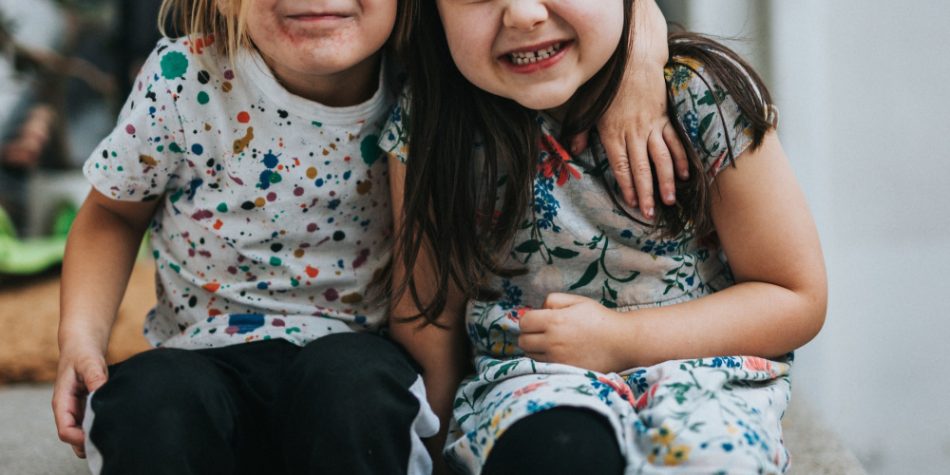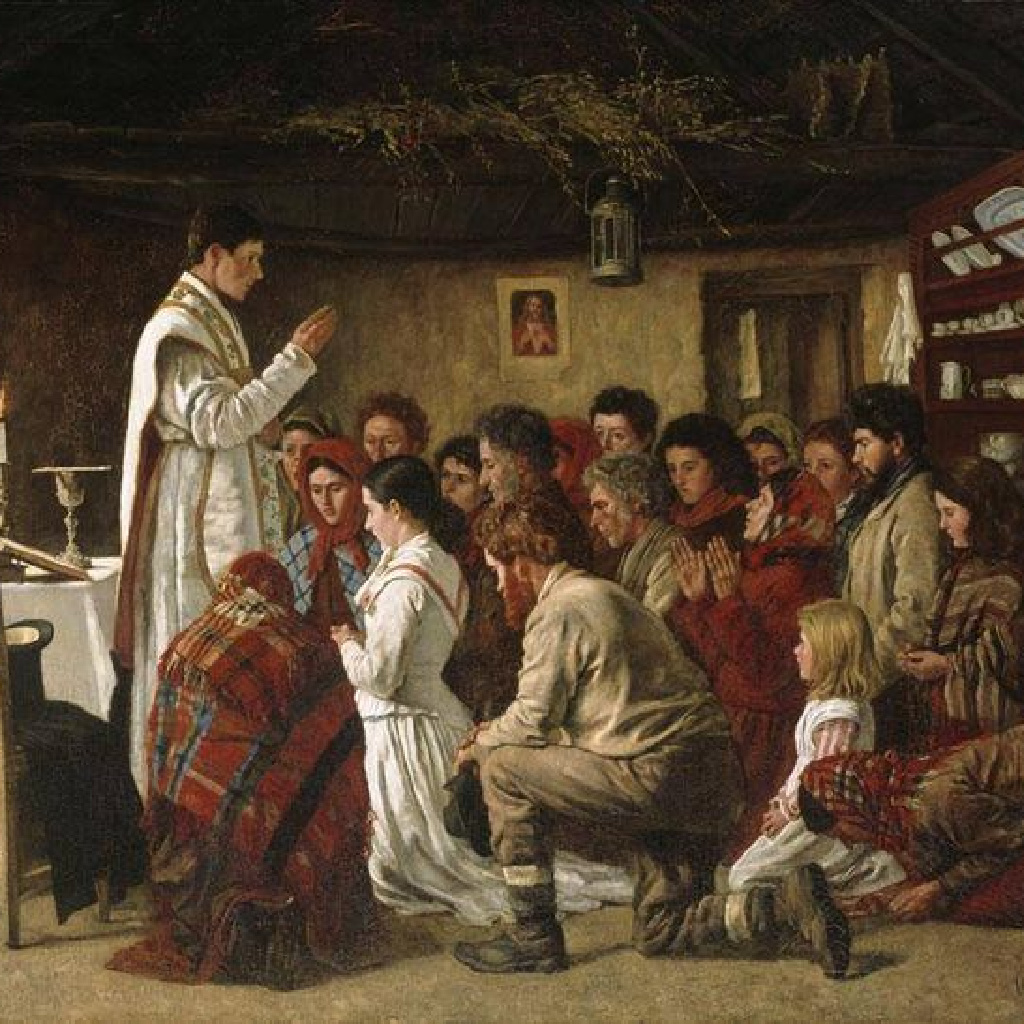Years ago, one of us participated in an effort to study domestic violence coordinating councils in one region of Illinois. At one formative meeting, a coalition of conservative and liberal organizations decided to stop working together on domestic violence because of sharp differences around abortion—along with a perception among some on the political right that domestic violence had become more of a “liberal issue.”
In a world that struggles to find common ground about anything that matters, it’s hard to imagine any issue that legitimately merits being called a universal common cause than the horror of family violence and child abuse. More than perhaps anything else, this is something that anyone with an intact conscience ought to be able to rally around in support of. Like many, we’ve wept this last week to hear about what these girls endured. Yet even basic unity around something like this remains remarkably elusive in our country today.
On such an urgent and universally important issue, it’s striking how much we struggle to extend the benefit of the doubt to others who say they care—even though it’s clear only monstrous souls could minimize the priority of abused children. That’s precisely the insinuation and suspicion that hovers over our recent public conversations about the abuse story. One new commentary takes for granted that “in some cases, the safety of … children might not be the church’s top priority when it learns of child abuse.” And in this week’s Washington Post article on the Arizona abuse case, the sincerity of leaders in wanting to stop abuse is held skeptically throughout—with readers invited to see the Church’s efforts as primarily “used to justify hushing up the young girl’s rape.” In a world that struggles to find common ground about anything that matters, it’s hard to imagine any issue that legitimately merits being called a universal common cause than the horror of family violence and child abuse.
Was that really ever in doubt? Of course, it was—and is—among the many who have seemed strangely eager to embrace the popular narrative of helpline workers and church leaders alike callously prioritizing institutional well-being above that of vulnerable children.
How, one might wonder, would it benefit the Church to cover up the rape of a child by a new convert? What exactly would the institutional advantage be to “divert abuse accusations away from” police to lawyers, so they can “bury the problem”? But never mind this kind of nuance. For those who already see faith as intrinsically fraudulent, this is really too good of an accusation to fudge with all those questions. Let’s just call anyone trying to think critically an “abuse apologist” and see if that quiets people down.
As a result, child sexual abuse now takes its place on the long list of crucial, even life-and-death questions, about which we have proven our skill at turning into culture war weapons rather than precious common causes to rally around together.
Over the last week, rather than focusing on how to support the healing of the many who have tragically experienced such abuse (one in ten children according to recent studies)—or what explains the horrifying cruelty of some called to care for them in this world—the public conversation has been almost single-mindedly focused on lawyers and a helpline.
There are obviously legitimate questions to ask, improvements to take seriously and failures to interrogate. But in our eagerness to explain and find blame in America, we have become remarkably quick to forget those most responsible for a tragedy. After a school shooting, we are again debating gun policy and first responder training. And after another revelation of horrifying abuse, we’re now fixated on insinuations about “cold-hearted” policy and procedure.
We respect that some see this as precisely the right focus—how else are we to achieve “systematic change”? What is missed in such an emphasis, however, are the individual moral agents at the heart of these tragedies—the men (and sometimes women) whose own choices are most directly responsible for unleashing a tsunami of pain.
If we were to have that latter conversation, it would remind every one of us about the central, eternal importance of our own individual actions and, yes, the interdependence of us all. It would also bring to the foreground realities of moral law, truth, sin, obedience, sacrifice, repentance, and God. By comparison, our prevailing public conversation does none of this—preoccupying us instead with not only procedural analysis but also with ruminations about possible misdeeds of anyone else surrounding the tragedy. In this way, the individual evil perpetrating the actual horror gets obscured as almost an afterthought.
Of course, those raising piercing accusations of cover-up against institutions like the Church of Jesus Christ see themselves as defending children too. And sometimes they really are, as widespread sexual abuse scandals in other faiths have demonstrated. But in this case, where no evidence has emerged of any widespread scandal, far less thought has gone to possible disadvantages to victims and children from rushing to conclusions so quickly. If there’s a more complicated story at play and we miss that, we might endanger more kids than we save.
For instance, those weaving a damning story about the Church as somehow a more dangerous place for vulnerable children are overlooking many established risk factors that say otherwise. Specifically, it’s well-known that children are at greater risk of sexual abuse:
- When a child lives without one of the biological parents
- When the mother is unavailable to the child either as a result of employment outside the home
- When the child reports that the parents’ marriage is unhappy or conflictual
- When the child reports having a poor relationship with the parents
- When the child reports having a stepfather
Fathers who report loneliness and unhappiness are also correlated with a higher risk of becoming an abuser—as are, no doubt, those who compulsively use pornography.
Laying aside whatever personal feelings you have about religion, vulnerable children require us to recognize how all of these risk factors (including pornography use) are measurably less likely in religious communities like The Church of Jesus Christ of Latter-day Saints.
That doesn’t mean there weren’t serious mistakes in this particular case or that faith communities don’t generally have things to work on. For all their benefits in offering rapid support, tight-knit communities can sometimes present unique barriers to accountability—wanting to “avoid contention,” “not be nosy,” and “not disrupt someone else’s sacred marriage.” Sometimes a laudable desire to believe the best about people can also get in the way of our ability to intervene when it’s sorely needed (“oh, he seems like such a great guy”.) Are we committed enough to eradicating abuse that we’re willing to put down our swords against each other?
In response to our own efforts to provide further context, some have wondered: When someone has been hurt so deeply and profoundly, how can we do anything other than rage against anyone involved?
While understanding the impulse, we reiterate that tragedy means we need to think more, not less—especially if we’re serious about doing all we can to make things better. Are we? Honest question: Are we committed enough to eradicating abuse that we’re willing to put down our swords against each other?
Certainly, our sorrow would be far greater if we believed these cases were somehow representative and illustrative of church callousness and self-interest at the heart of an entire system, as the original AP article implies.
As we attempted to demonstrate last week, that’s simply not fair or true. As illustrated by people who have worked on the helpline, this has been staffed by men and women earnestly seeking to help children. We ourselves have spoken with those who have worked as attorneys and counselors for the helpline. This is a 24 hours a day, seven days a week service provided by people who care and understand—and who, in some cases, are survivors themselves. To assume their first priority isn’t as stated, to “assist victims and help protect them from further abuse, help protect potential victims, and comply with legal requirements for reporting abuse” is a slap in the face.
It also requires ignoring enormous evidence to the contrary in its collective Christian ministry across many decades to believe the sponsoring church and leadership aren’t sincere in their condemnation of these heinous acts of abuse. As it said in an official response:
The abuse of a child or any other individual is inexcusable. The Church of Jesus Christ of Latter-day Saints believes this, teaches this, and dedicates tremendous resources and efforts to prevent, report, and address abuse. Our hearts break for these children and all victims of abuse.
Speaking for all members of the Church, Elder Patrick Kearon said in our most recent conference said that if you have experienced abuse in the past, “we weep with you.” And “we yearn for you to overcome the confusion, shame, and fear” and to find healing in Christ.
It’s that healing for all victims that must be our top priority, along with protecting anyone else from experiencing these ravages. In that sense, a thoughtful reappraisal of systemic and institutional support seems surely justified. But who does it help to insist the evidence points toward system-wide evil?
Even if we were to take a self-interested angle, once again, the Church actually has very little incentive to cover up abuse among congregants (as opposed to abuse committed by leaders). So even in this painful moment, we believe in a church that can’t protect everyone but sincerely tries to do so.
In the end, some have wondered if the Church’s abuse helpline does ultimately help children or not. One of the risks in cases like this is that we become so outraged that we end up throwing out procedures that were working well and end up making the situation much worse than it was.
But even if the helpline is a net positive, they didn’t save these two children. And those two are infinitely important.
Let’s continue praying for their healing and future happiness— and put heart and soul into doing absolutely everything we can as a community to prevent such sickening evil within any family in our midst or anywhere around us.
Heaven knows, not until such suffering is eradicated will Zion truly be built among us.
















